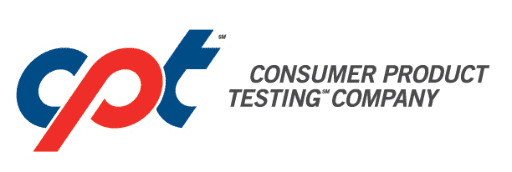When launching a new cosmetic product, safety should be your top priority. Whether you have developed products in the past or are new to the industry, cosmetic laboratories can help you every step of the way. If you’re in need of safety testing or efficacy claims testing, choosing the right lab can be a crucial factor in the successful launch of a new product.
What Cosmetic Laboratories Can Do for You
When developing cosmetics pre-launch, a product testing facility can help you finalize a product that is not only safe but high in quality. Since the Safe Cosmetics Act of 2011, also known as HR 2359, consumers and the FDA (as well as other affiliated associations) have a heightened state of awareness of key ingredients.
One of the benefits of working with cosmetic laboratories is that they will be able to provide the level of support you need to achieve long-term success. From in-vitro toxicology to clinical trial services, a credible testing lab will evaluate:
- Safety — The non-animal methodologies available provide peace of mind that your product is safe for clinical trials. Skin and eye irritation are common areas of concern, which are typically addressed in a lab’s toxicology department. Anything that comes into contact with skin needs to be tested. This will not only protect the user from possible reactions but also help your company against a possible lawsuit.
- Quality— Related to claims support, you need to ensure that your product is effective. From the hardness of lipstick to the emolliency of lotions, quality assurance is everything. If you are launching an anti-aging cream, for instance, in order to get repeat business (and build a brand), your product should be tested. Based on consumer feedback, you can tweak your formulation to ensure greater success. Taking a proactive approach will save you both time and money.
- Claims — Does your product deliver? If you are going to make any claims on your product labels, you need to support those claims with scientific data. If a deodorant claims to provide 24-hour protection, for example, it needs to be tested in order to make such marketing claims. Misleading customers could pose a problem for your business, as customers may lose trust in your brand.
When you find a credible testing facility that meets the quality criteria listed below, ask about the following services and departments. Not all of the following will be required — it will depend on what you are offering the market and the claims you plan to make:
- Analytical — Do you need to test excipients? Do you need to test actives? From stability testing to potential leachables, inquire about all recommended tests, based on your product.
- Clinical — Inquire about clinical trials and available subjects. This will help you test both safety and performance.
- Microbiology — From antiseptic capabilities to preservation, these services will help you ensure safety and stability.
- Photobiology — This is particularly important for outdoor products. When making protection claims, efficacy testing is key.
- Safety — Will your product cause an allergic reaction? Will it cause irritation? Take a proactive approach pre-launch to protect consumers as well as your brand.
Qualities of a Good Testing Lab
If you’re new to this industry, it’s imperative that you research the cosmetic laboratories you’re considering and be mindful of the following characteristics:
- High integrity — The testing facility you work with should be morally sound and honest. This step could potentially make or break your business, so you need to ensure that the facility is registered and accredited. This will verify their commitment to integral practices.
- Ethical — In order to provide you with the type of data you require, be conscious of how a testing lab will extract that data. The facility should be GCP, GMP and GLP certified, meaning they adhere to ethical, practical standards. In addition, this means that all data collected will be reliable.
- Registered — Immediately inquire about FDA, DEA, EPA and other associated organizations. A quality testing lab should be able to freely provide their registration numbers.
- Provides additional support — For those who are unsure of the testing process, cosmetic laboratories should provide the level of support you require. Whether you are a small or large company, the facility’s staff should be able to help you execute your testing needs, considering your budget, timeline and scale of manufacturing.
- Offers various specializations — Safety testing requires experts across a number of departments, which is why a credible testing facility is critical. Although you may be concerned with toxicology, for instance, it’s also important that you have access to other departments and associated equipment. An understanding of microbiology and chemistry are often a necessity, which is why you’ll want to inquire about available services and capabilities. The list above regarding recommended services is a great starting point.
In comparison, a poor testing facility is unethical and untransparent. If you ask basic questions and they cannot provide you with straightforward, confident answers, explore other options. Make a checklist of FDA standards and requirements and, if the facility does not pass your standards, move on. Due diligence is very important regarding cosmetic safety testing.
If you are ever unsure after you have dug a little deeper, go with your gut. If the testing facility does not feel legitimate or safe, it’s best to invest your time and money into an accredited lab that has experience. You should not need to jump through hoops in order to receive basic information regarding ethical practices and industry standards.
Take the right steps today to protect your brand for many years to come.


